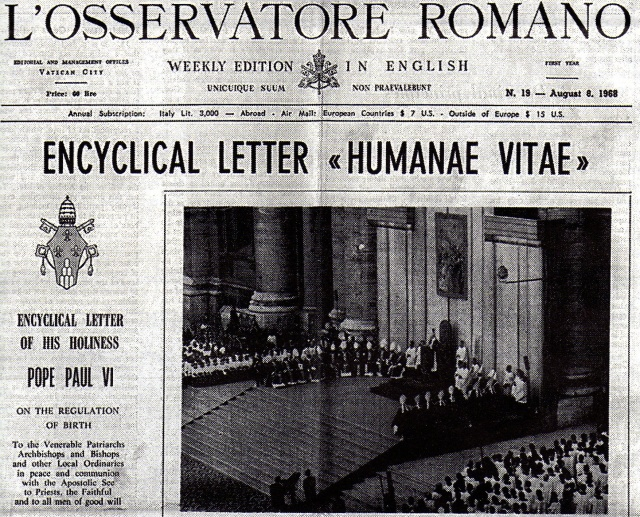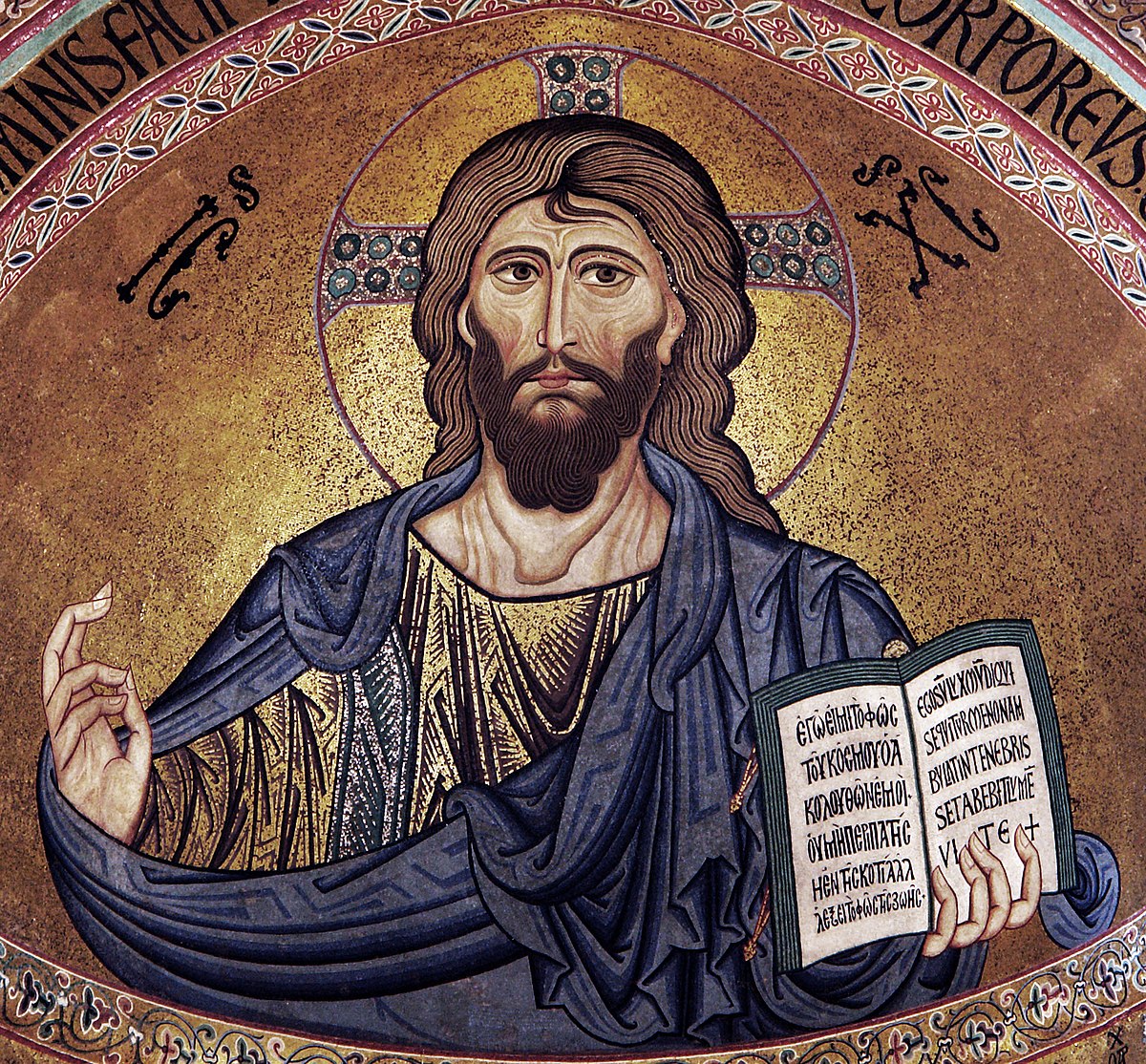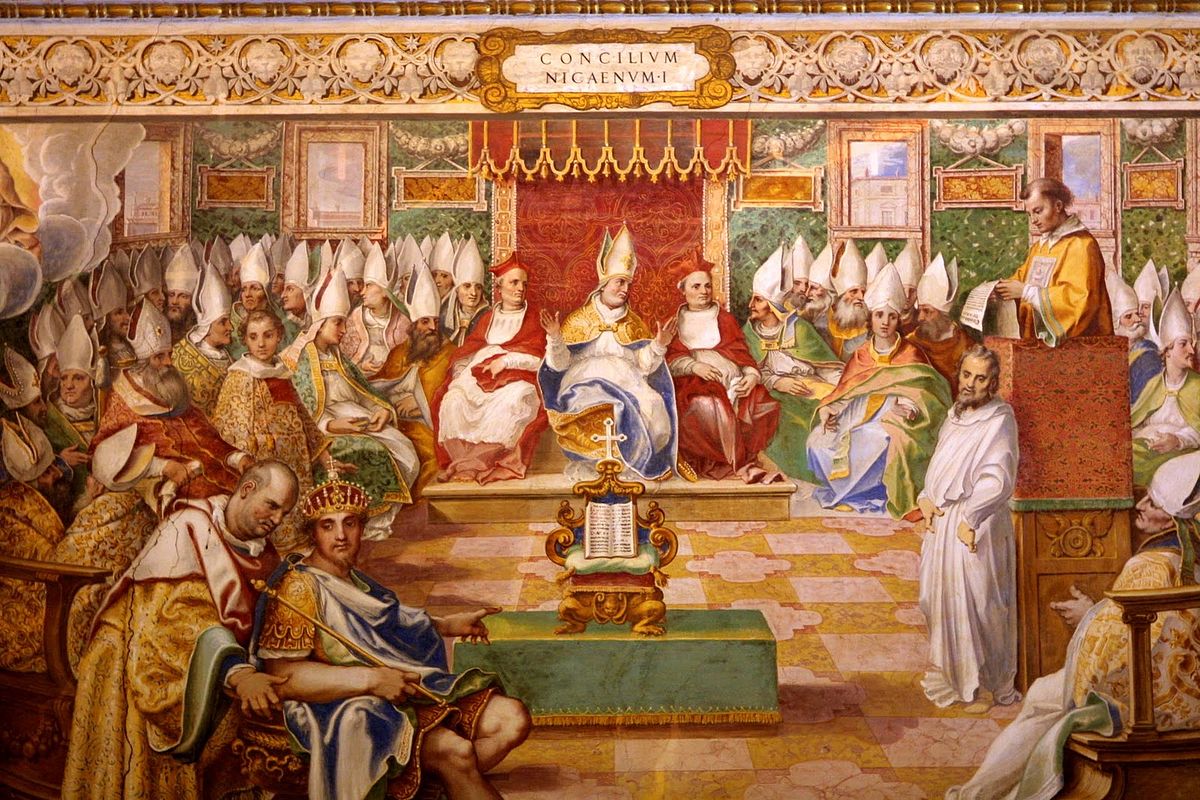
On the morning of October 9, 2020, the feast of St. Denis and his companions, and of St. John Henry Newman, recently canonized, we who walk in this vale of tears lost one of our greatest exemplars of the Christian life: Dr. Brendan McGuire, beloved professor and scholar, father and husband, and, above all, authentic man of God. In the coming days, the social media feeds of everyone in the Christendom College community and beyond will see stories shared by students, alumni, friends, colleagues, and family alike talking about this great man.
If I might be so bold, allow me to add my own contribution.
I had the honor of having Dr. McGuire as a professor the spring semester of my senior year at Christendom. If memory serves me correctly (which it might not), he had recently been hired as a full-time professor at the College, having up to that point been a mere adjunct (he may have been hired as a full-time professor the year after I graduated, but I’m not sure). Everyone who met him knew he was a genius, yet not the sort of genius that lords his intellect over you, nor the type of brainy person who cannot engage in a simple conversation about simple things. He was approachable and understanding, and this combined with his amazing knowledge of his subject matter made him a superb teacher.
How did I end up in his class? I needed one more history course to complete my history major, and I had my choice of several courses, all of which appealed to me, both because of the course content and because of the professor. Yet I finally settled on taking “Reconquista and Crusade” under McGuire, for my underclassmen friends, who had enjoyed him for their core history classes, insisted I had to take McGuire’s class.
And so, since this was my last chance to take a class taught by him, I did.
And I can honestly say it was one of the best decisions I made in college, and easily one of the most transformative. For now, reflecting back after more than a decade of my teaching career, and seeing the trajectory of who I am today, I can point to Brendan McGuire as one of the most profound influences of me, not only as a teacher and a scholar, but as a Christian man. I can point to that upper-level history class in Thomas Aquinas Hall, to sitting in those seats, watching and learning from a man who, though just three years older than me, transformed my understanding of the word “teacher.”
I can say with certainty that no teacher or professor of mine, from kindergarten through graduate school, had a more direct impact on me as a teacher today, than Professor Brendan McGuire.
Reflecting back, I realize that the impact of McGuire’s teaching was quite immediate. That same semester, when I was taking his Crusades class, I was also taking part in the Teaching Practicum program through the College. As part of that program, I prepared my own lesson plans for classes that I would teach under the mentorship of a master teacher (in my case, Anne Carroll at Seton School in Manassas, VA, for her sophomore world history class). As I prepared for the lessons, I had in my mind the model of McGuire captivating the classroom. Not what he taught, since I was to focus on events in the 19th century, rather than the Middle Ages, but how he taught. I consciously began thinking, as I was preparing, “how would McGuire teach this? How would he act? What would he do?”
At the end of this post I will provide links to recordings of his lectures, both audio and video (especially video, if I can). They will give you a sample, a taste, of the electricity that filled the classroom when McGuire began to teach.
How did McGuire teach? Simply put, he taught with the passion of what one might call evangelical zeal.
He had notes, yes. It was clear. There they were, sitting on the podium in the front of the room. But did he need them? Sometimes, though hardly. He had the stories he told memorized, the spelling of names at the tip of his fingers. The notes usually stayed on the podium, while McGuire charged around the room, up the aisles, down the sides, to the board, then back to the students.
Rarely did he need to double check his notes.
You were sucked in, no longer sitting in a chapel-turned-classroom nestled in the Shenandoah Valley, surrounded by students and paper and laptops. You were marching with the crusaders, beholding banners and flags fluttering with the wind, seeing heroes and villains vying for the holiest place on earth. There you were, and yet not there. You were seeing this pageantry, and understanding it from a far, as one looks at some event with the hindsight of the future.
So it was in McGuire’s class.
From then until now, I have consciously tried to follow his style. I have tried to know my topic well enough that I can be among my students when lecturing, rather than pinned to the podium, which seems so distant. I have tried to infuse in my lessons the energy, the passion, which filled every McGuire class period. “If McGuire was teaching this, how would he do it?” This I asked myself in those early days as a student-teacher, and so I ask myself today.
I don’t lecture as much as I used to in my classes, which is a pity and a gift. Nowadays my students do more of the work, scrounging for the information themselves, rather than me simply giving it to them. But I still enjoy lecturing when I get the chance, and every time I do, I still try to be like McGuire.
***

I kept up with McGuire after my graduation, though nowhere near as much as many of my friends, who can and will share many beautiful stories about this pious, brilliant man. For my part, I would chat with him during campus visits for Homecoming or other events.
I listened with delight to his frequent lectures for the Institute of Catholic Culture (again, see below), even attending one in person with my wife Sarah, then my fiancée, on Valentine’s Day 2013. Brendan gave the entire forty-plus minute lecture without his notes, which he had forgotten at his chair.
I heard him present about his exciting historical and archaeological findings concerning the Rose Mosque in Istanbul (he had planned to publish his findings in a peer-reviewed setting, but I don’t know if that ever came to fruition). I deeply enjoyed his presentations delivered at two of Christendom’s Summer Institutes.
It was during one of those Institutes, during a break when he and I were briefly catching up before he would go on stage and present his paper, that he revealed something about his character, which I’m sure other people knew but which surprised me.
Public speaking terrified him.
The size of the audience did not matter; he even felt nervous before the start of his class lectures (though on this occasion he had good reason to be nervous, as his talk that day was before the rest of the Christendom history department, his former dissertation advisor, and another noted historian). That struck me because, as I told him, I would never have thought that. The confidence he exuded when he spoke covered completely his concern; indeed, that afternoon his talk enthralled the audience, so much so that the woman next to me uttered a soft “wow” while applauding.
“Imagine having him for class,” I turned and said to her.

***
For me, this insight into McGuire’s courage, which allowed him to overcome what could have been a crippling obstacle to his vocation as teacher, puts his fight against cancer in a tremendously spiritual perspective. When McGuire and I spoke about his fear of speaking, he had already faced cancer once. . . and beaten it. He suffered from a rare type of bone cancer, which normally manifests itself in juveniles, but which did not affect Brendan until he was 28 years old. It is perhaps because of Brendan’s fullness of life, his energy and vigor, which helped him through session after session of chemotherapy. And it worked! A year after receiving his diagnosis, McGuire was officially clear of cancer.
Sarah and I joined some of his family and friends to hike up Old Rag, a mountain trail near Front Royal, to celebrate his recovery. The man who had only a year earlier been fighting for his life now outpaced us easy, leaving Sarah and I to catch up. That was almost a year before our conversation outside the Summer Institute; all was well. His health returned; he presented lectures and traveled, publishing an article in the Journal of Medieval History. His family grew, and he devoted time to them and to his students.
Then the cancer returned. And again, McGuire beat it.
And again.
And again.
Each time the man returned, his passion for his students and family remained unquenched, his love of learning and teaching as evident as it was when I sat in his classroom. Unless you knew what he had been suffering, you could be forgiven for thinking that the master teacher lecturing to a classroom of students (albeit, with a noticeable limp) or a parish hall packed to overflowing was perfectly fine.
Spiritual masters place a huge emphasis on the importance of fasting, because by denying yourself in small ways that you can control, you are more prepared to accept spiritual challenges and dangers that unexpectedly come your way. Like a well-trained athlete, whose regular practice prepares him for the field or court, so fasting helps align your will to that of our Lord’s.
I can’t help but think that Brendan’s triumph in those little things of life, embracing his vocation each day, helped him face the much more massive challenge which was in store for him in the last decade of his life, especially as his end came. It came suddenly, from what I understand. He was teaching on Wednesday and Thursday, conversing and carrying on with his students, colleagues, and friends. He went to the hospital on Thursday night, not too unusual considering his battle with cancer.
Then, by the time our world woke on Friday, he had died.
We really do not know the day nor the hour when Christ will call us to Himself.

***
I want to close this tribute by connecting one of my other historian heroes, Warren H. Carroll, with Dr. McGuire. The comparison is apt, as McGuire was a student of Carroll’s as an undergrad, and likewise taught for years using some of Carroll’s books in Christendom’s history core classes. Carroll was overjoyed when he learned that McGuire had returned to Christendom to teach.
Don’t take my word for it. Hear Carroll himself.
As part of Christendom College’s 30th Anniversary celebration, Carroll gave a speech to the undergraduate students entitled “Thirtieth Anniversary Reflections from the Founder” (I was there). Towards the end of his speech, Carroll devoted considerable time to naming and describing alumni, current students, and even (possibly) future students of Christendom College, who would make their mark on the 21st Century.
In and amongst other notables, Carroll had this to say about his young disciple, Brendan McGuire:
Then consider Brendan McGuire of the class of 2003, who was just hired to teach history at this college (and I think he’s here), who had the only straight-A record ever attained here. Not surprisingly he was the valedictorian. . . He spoke splendidly at his graduation on the nature and purpose of this college. Brendan McGuire, now just 24 years old, will go on to make his mark on the nation and on the world in the 21st century.
Dr. Carroll, throughout his life, repeatedly called for a rejection of relativism and announced the gospel that “Truth exists,” followed by the central historical Christian claim that “The Incarnation happened.” These watchwords embodied the scholarship, teaching, and life of Brendan McGuire. As a medievalist, McGuire faced his fair share of controversial topics, and it could have been easy to dismiss the stories of miracles and other incredible tales from medieval records (as many skeptical historians do today) or embrace these incredible tales without any critical examination (as some religious writers do). Yet we see in the lectures and articles published by McGuire that healthy, authentically Catholic balance between Faith and Reason, a search for the authentic story of our Faith.
McGuire did not produce a hefty body of peer-reviewed works and books. A survey of recordings and webpages featuring his teaching demonstrate that this was not because he lacked the desire nor the intellectual prowess to create such scholarship. He did not have the time. It was not, it seems, his calling. Yet he was a scholar, in the fullest sense of the world, and a teacher like no other. Much of academia emphasizes peer-reviewed scholarship as the sign of a successful academic, a sign that you are making an impact on the world, or at least in your discipline. In a way, McGuire’s career is a rejoinder to that cliché. The impact of his career will spread far beyond the journals and conferences where he could have made his mark.
His impact will spread beyond academia because he focused on his students, on his family, and on Christ. A man faces many decisions in his life, and he must decide where to put his emphasis, to entrust his life. Brendan McGuire could have, when faced with his diagnoses over the last decade of his life, buried himself in historical research, to the detriment of his family and the Faith. He could have sought a position where he would research and write, and not teach, or at least teach with little interest in the wellbeing of his students.
But he didn’t. He put his life into his family, his Faith, and his students. He was a man who lived his life as something good, not something to be feared or grasped at, like Adam and Eve grasped in Eden. All of us, then, are his students if we are attentive to him and his practical wisdom that seems so simple, and yet transcends our mere life.
That, then, is the legacy left behind by Dr. Brendan J. McGuire. As Dr. Carroll predicted, Brendan has made his mark on the nation and the world, wherever those of us who heard his lessons live and teach.
We face death with a mixture of sadness and hope. Sadness at the loss of one so loved, and hopeful in the Resurrection of Christ, for we are an Easter people. I know we should pray for the repose of Brendan’s soul, that he might enjoy eternal life with Him to whom he dedicated his life. At the same time, and I do not say this flippantly, I wonder if, just maybe, we should not only pray for Brendan, but also start asking for his intercession.
Brendan McGuire has died; he has left this mortal coil. Yet he is now more alive than we are, for he is alive in Christ! And we who hope in Christ, as I said, hope in His Resurrection. We can take comfort in these words from C. S. Lewis, which McGuire quoted at the very end of his Valedictorian address in 2003: “A Christian never says goodbye.”
Eternal rest grant onto Brendan McGuire, O Lord, and let perpetual light shine upon him. May his soul and those of all the faithfully departed, through the mercy of God, rest in peace. Amen.
All pictures featured in this post come from Christendom College (Christendom.edu).
More by and about Dr. McGuire.
His obituary and teacher profile from the Christendom College website.
His essay, “ISIS and Its Historical Context” through Christendom College’s Principles publication.
His talks for Christendom College’s Principles lecture series, one entitled “The Crusades and the Political Misuse of History,” the other entitled “In the Fullness of Time: Historical Context for the Incarnation” (which comes with a Q & A session).
Lectures delivered by Dr. McGuire for Christendom College’s Summer Institute, as well as a lecture he gave in honor of St. John Henry Newman’s canonization.
McGuire speaking about the academics program at Christendom for parents and prospective students.
Articles by McGuire on the Crisis Magazine website.
Lectures he delivered through the Institute of Catholic Culture (you may need to set up an account to view these on the website, but the audio recordings are also available to download through Podcast apps and on Youtube).
McGuire, Brendan J. “Evidence for Religious Accommodation in Latin Constantinople: A New Approach to Bilingual Liturgical Texts,” Journal of Medieval History, Vol. 39.3, 2013. https://doi.org/10.1080/03044181.2013.798832
McGuire review of David M. Perry, Sacred Plunder: Venice and the Aftermath of the Fourth Crusade











